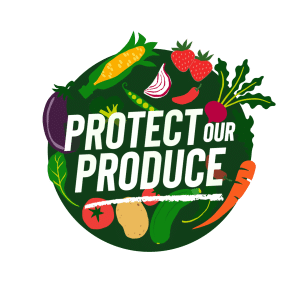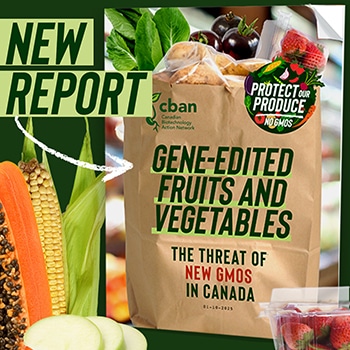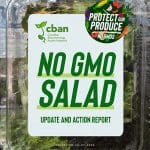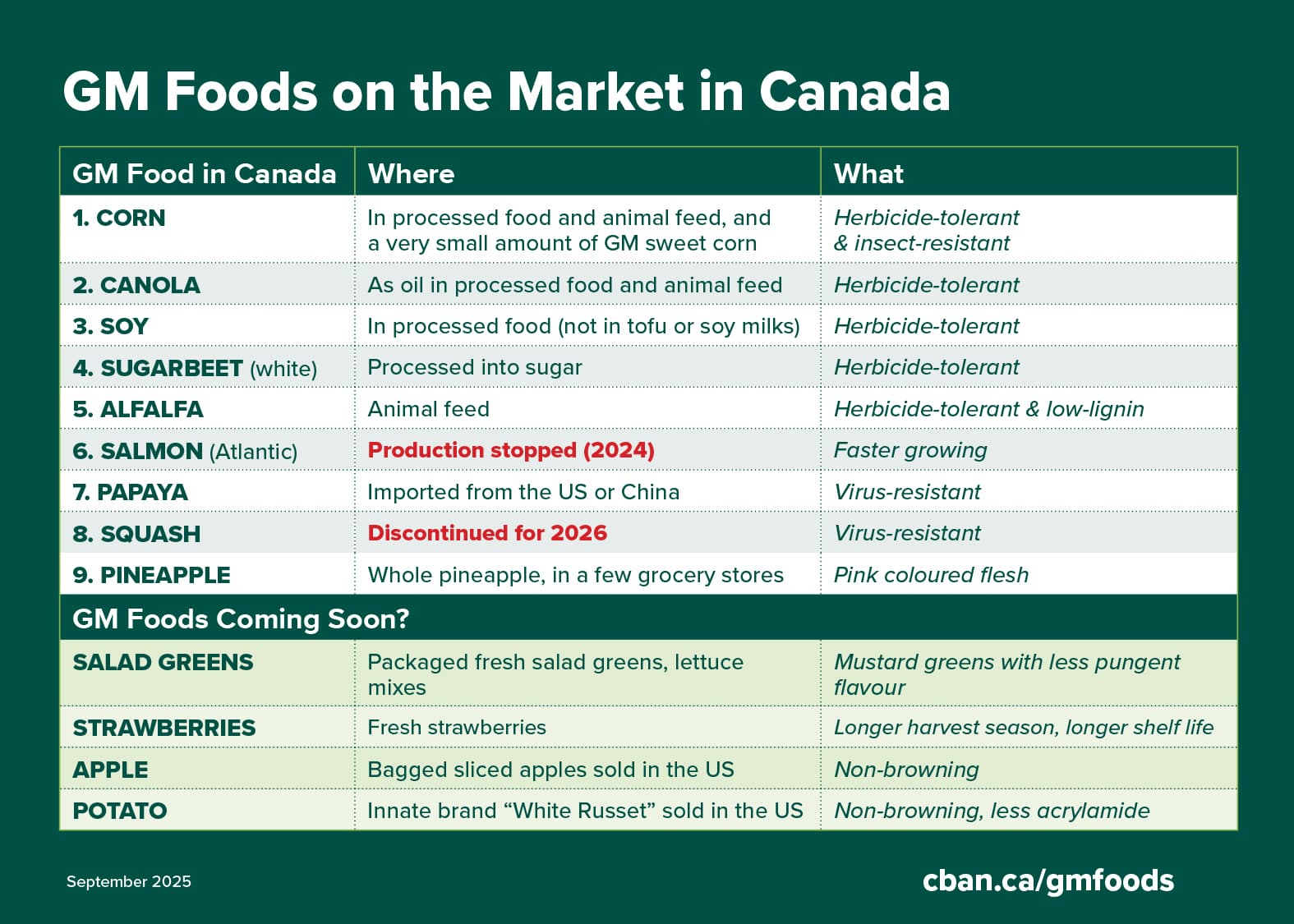 Commit to Non-GMO Produce
Commit to Non-GMO Produce
Offer a clear, trusted choice to your customers.
Welcome to the Canadian Biotechnology Action Network’s Non-GMO Produce resource page.
Here you will find helpful information about genetically modified (GM or genetically engineered) fruits and vegetables in Canada.
Commit to exclusively sourcing non-GMO produce.
Commit to a Non-GMO Produce Section
CBAN will publish a list of retailers who ensure their produce sections are non-GMO.
Provide your public commitment to sourcing exclusively non-GMO* fresh fruits and vegetables.
*Genetically modified organisms (GMOs) are living organisms that have been genetically modified (genetically engineered) in the laboratory to have new characteristics, including through gene editing techniques.
Consult CBAN’s Guide to Securing Your Non-GMO Produce Section
Please contact Fionna to ask any questions or discuss this issue at outreach@cban.ca 249-532-0340
Guide to Securing Your Non-GMO Produce Section
There are very few GM whole fruits and vegetables on the market, with a marginal market presence.
Gene Edited Fruits and Vegetables
Read the new report Gene-Edited Fruits and Vegetables: The Threat of New GMOs in Canada, released October 1 2025. 
The report profiles the three GM fruits and vegetables on the market in Canada (GM sweet corn, GM papaya, GM pink pineapple), three new GM whole foods that could soon be introduced (GM mustard greens for salad, GM strawberries, GM purple tomatoes), and three prominent GM products that are not yet on the market in Canada despite many years of promotion (GM potatoes, GM apples, GM bananas).
GMO Salad
 Bayer (formerly Monsanto) is getting ready to sell genetically engineered (genetically modified or GM) mustard greens that are gene edited to taste less mustardy.
Bayer (formerly Monsanto) is getting ready to sell genetically engineered (genetically modified or GM) mustard greens that are gene edited to taste less mustardy.
July 2025: Read CBAN’s “No GMO Salad: Update and Action Report” here.
January 2025: Click here for CBAN’s “GM Greens Alert.”
View CBAN’s No GMO Salad campaign page.
GMO Strawberry
In 2021, The J.R. Simplot Company (Simplot) and Plant Sciences, Inc. announced a partnership to develop a gene-edited strawberry with increased shelf- life.
Simplot has also expressed interest in selling a gene-edited strawberry in Canada soon, gene-edited for a longer harvest season.
Simplot is a US-owned, privately held agribusiness company that operates in more than 60 countries. Simplot has launched a genetically modified potato in the US but it is not yet sold in Canada.
Protect Our Produce FAQ
Click here for Frequently Asked Questions about how to Protect Our Produce from new GMOs.
Introduction to Gene Editing
Genome editing techniques, also called gene editing, are a type of genetic engineering resulting in the creation of genetically modified organisms (GMOs).
Genome editing is a collection of techniques that alter the genetic material of plants, animals and microbes. The aim is to insert, delete or otherwise change a DNA sequence at a specific, targeted site or sites in the genome.
These new genetic engineering (genetic modification or GM) techniques raise many of the same risk questions as earlier techniques of genetic engineering, and raise the same environmental, social, economic and ethical concerns.
Read CBAN’s two-page factsheet “Gene-edited foods are GMOs.”
Click here for CBAN’s “Introduction to Genome Editing in Food and Farming.”






